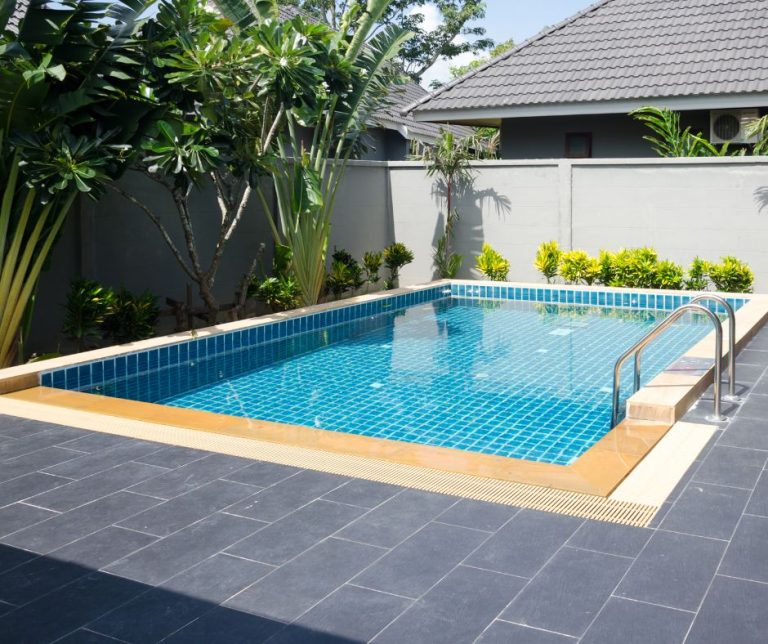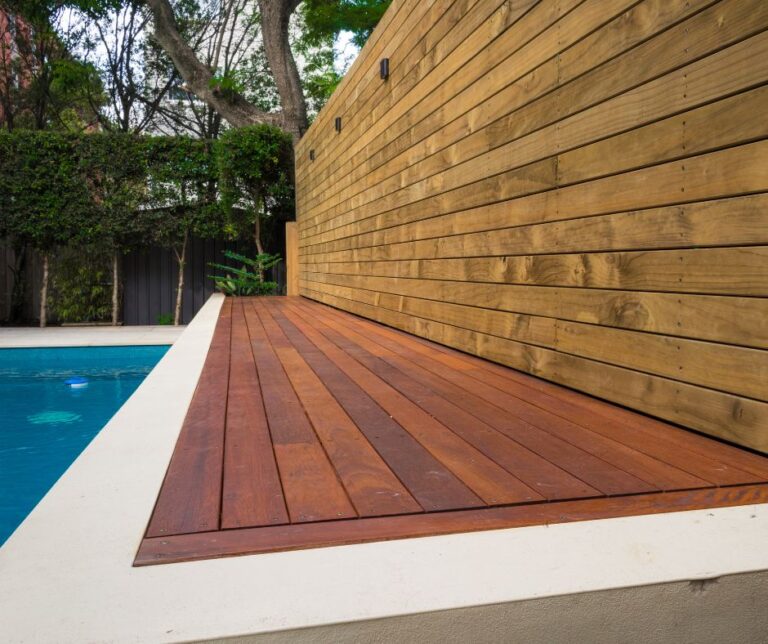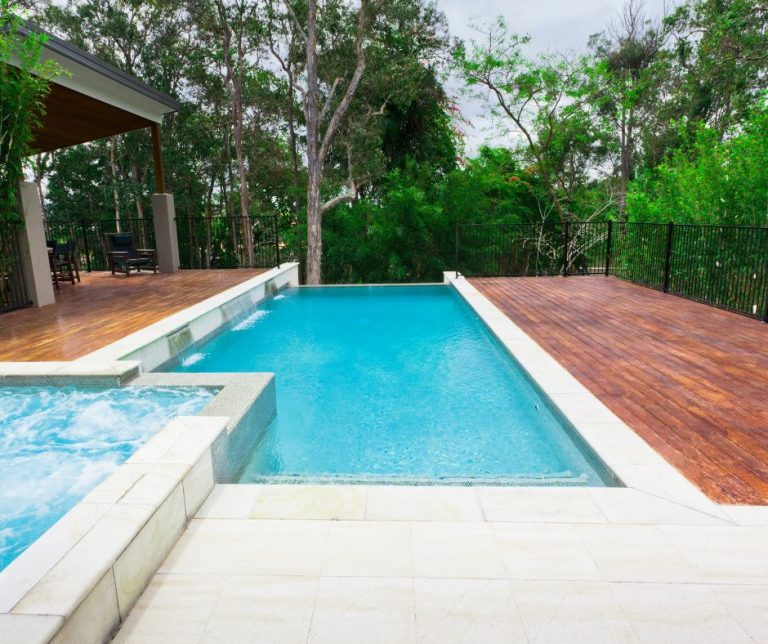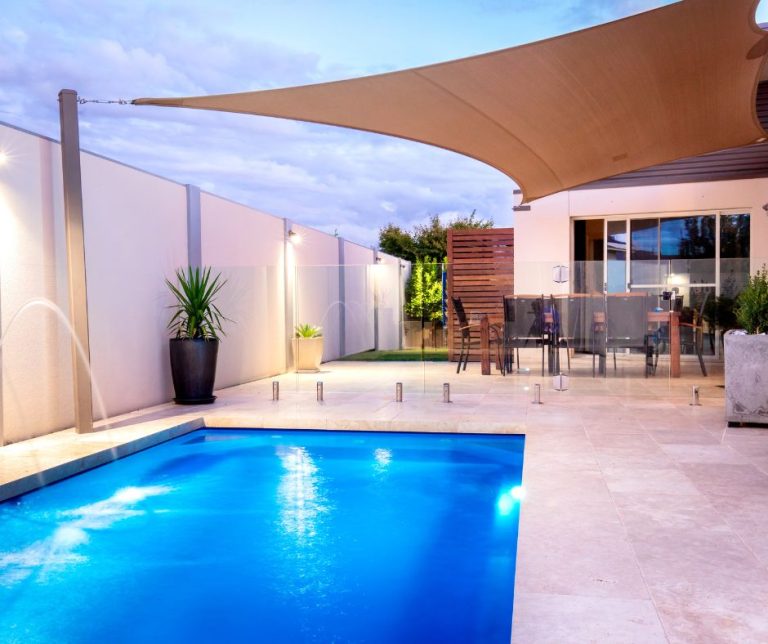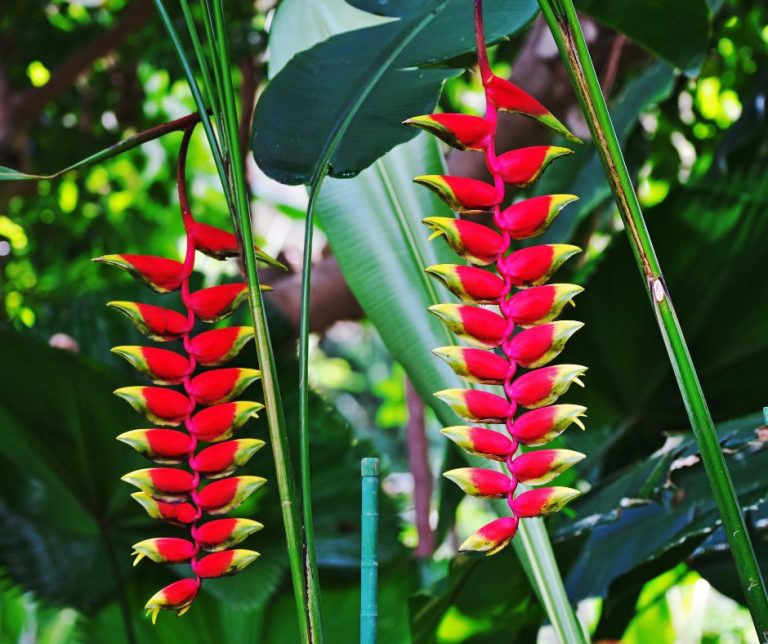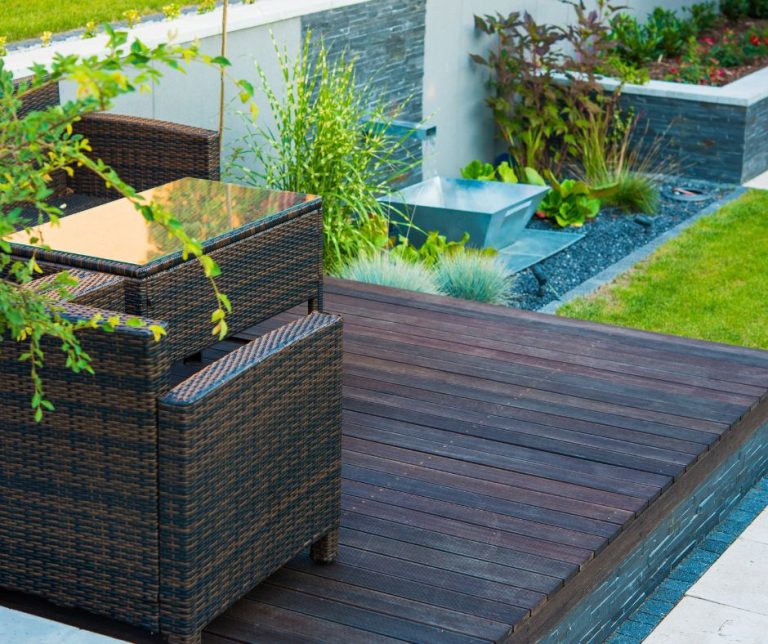What Is The Best Timber For A Pool Deck In Sydney?
A timber deck can look amazing! But the choice of timber for your pool deck is a critical decision that can significantly impact the durability and maintenance requirements of a pool deck. Let’s look at the timber options available for pool decks in Sydney and some comparative analysis of the various timber types, and discuss their maintenance needs and longevity.
Our aim is for you to have a timber pool deck that not only enhances the beauty of your outdoor space but also stands the test of time.
If you are also considering pavers – Read our article about decks vs pavers.
Exploring the Best Timber Choices for Pool Decks in Sydney
When it comes to selecting the ideal timber for your pool deck in Sydney, there are several factors to consider. The timber should be durable, resistant to water and humidity, and pleasing to the eye!
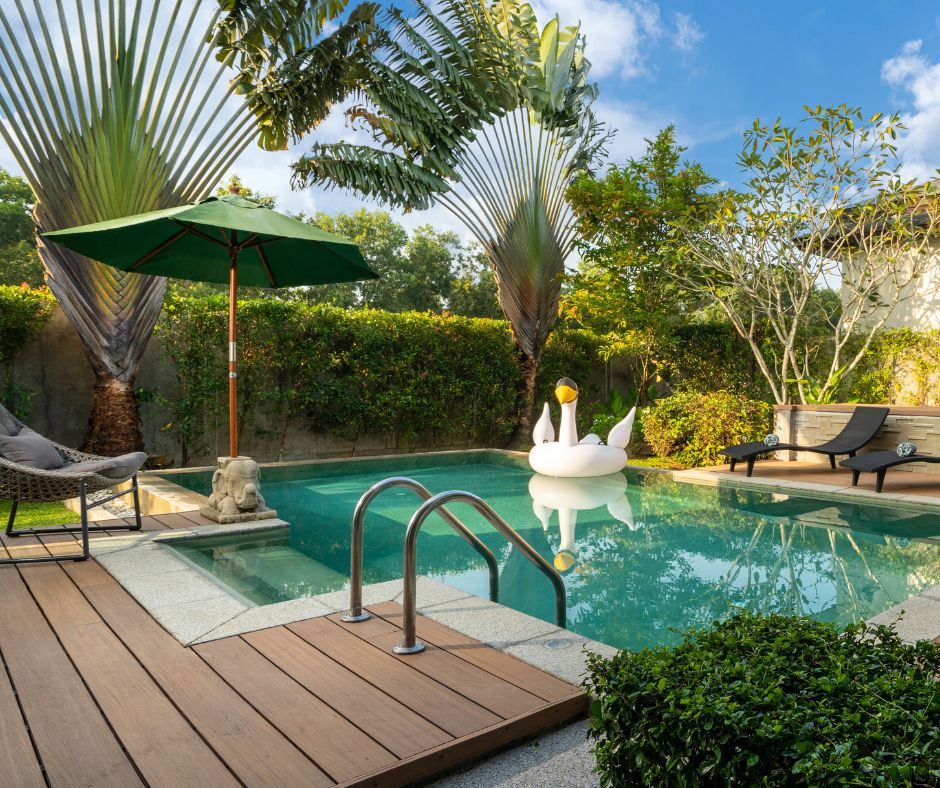
The Durability of Australian Hardwoods for Pool Decks
Among the various types of timber available for pool decks, Australian hardwoods stand out for their exceptional durability. These woods, including species such as Spotted Gum, Blackbutt, and Jarrah, are naturally resistant to rot, decay, and insect attacks, making them an excellent choice for outdoor applications like pool decks. The high density and oil content of these woods provide a natural barrier against water absorption, which is crucial in a pool deck environment where the wood is constantly exposed to moisture.
Comparing these hardwoods, Spotted Gum is one of the most popular choice of timbers that we install due to its high durability rating and attractive grain patterns. It has a Janka hardness rating of 11.0, indicating its excellent resistance to wear and tear. Blackbutt, with a Janka rating of 9.1, is another durable option with a lighter colour, making it suitable for homeowners seeking a brighter aesthetic for their pool deck.
Merbau is the most commonly known timber for decking – But it is not always the best choice for a pool deck due to the high amounts of sun the timber must deal with.
If you are considering Merbau – you may want to look at different shade options for your pool. This will help protect the timber for a longer lasting deck.
| Wood Type | Janka Hardness Rating | Colour |
|---|---|---|
| Ironbark (Grey & Red) | 14.0 | Varied, from pale to mid purple brown, dark chocolate brown, deep rich red, and grey shades |
| Spotted Gum | 11.0 | Varied, from light brown to dark brown |
| Brushbox | 9.4 and 9.5 | Pale pink grey to deep russet |
| Blackbutt | 9.1 | Light brown to yellow |
| Merbau | 8.56 | Ages to a darker reddish-brown. |
| Tallowwood | 8.5 | Yellowish brown to paler shades |
| Jarrah | 8.5 | Rich red |
The Aesthetic Appeal of Hardwood Timbers for Sydney Pool Decks
Hardwood decking not only offer a distinctive look but also provide excellent durability and resistance to the harsh Australian climate.
Like all timber products though, it will need care and ongoing maintenance.
A timber deck can last decades when it is well cared for and deck restoration can be carried out when it is required to sand back the timber and restain or re oil to bring it back to looking like new.
Let’s delve into some of the top 6 hardwood timbers suitable for Australian pool decks:
- Merbau: This timber is highly prized for its deep, reddish-brown colour and natural resistance to decay and insects.
- Spotted Gum: An Australian native timber, Spotted Gum is known for its strength and varied colour palette, which can add a unique aesthetic appeal to your pool deck.
- Blackbutt: Another Australian native, Blackbutt is a great choice for pool decks due to its high durability and resistance to fire.
- Brushbox: Known for its beautiful range of colors (pale pink grey to deep russet) and high density, Brushbox is highly resistant to wear and splintering. However, its natural waxiness makes it less compatible with certain floor finishes
- Ironbark: Especially hard, strong, and durable, making it ideal for decking and high-traffic areas. It is available in a variety of colors including pale to mid purple brown, dark chocolate brown, deep rich red, and grey shades. Ironbark offers both aesthetic and practical advantages for pool decking applications
- Tallowwood: This timber has a warm, golden color ranging from yellowish brown to paler shades. It’s strong and workable, with high durability against termites and rot, making it a good choice for decking
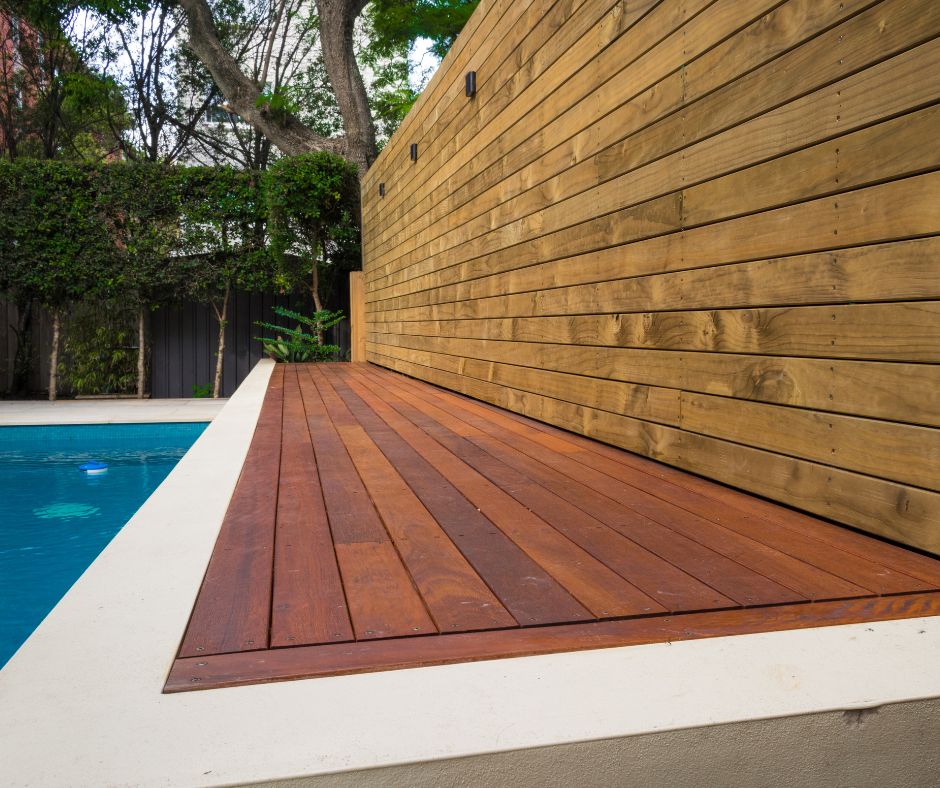
Can I use Treated Pine for a Pool Deck?
This type of timber is cost-effective and durable, but it is a soft wood and will require painting or staining for it to look attractive.
A treated pine deck will be cheaper to build, but you will not get a long lasting deck due to the damage that will happen from wear and tear on the timber surface
Maintenance and Longevity of Various Timber Types for Pool Decks in Sydney
Understanding the maintenance requirements and longevity of different timber types is crucial when selecting the perfect material for your pool deck in Sydney. Hardwoods are the most popular choice of decking timber due to their durability and resistance to rot and insect attacks.
They do require some maintenance, but can last for decades when properly cared for.
Softwoods like Treated Pine are more affordable but require more frequent maintenance to prevent decay and damage. Here’s a quick checklist for your reference:
- Hardwoods: Merbau, Spotted Gum, Blackbutt, Ironbark, Brushbox, and Tallowwood – High durability, low maintenance, long lifespan.
- Softwoods: Treated Pine – More affordable, higher maintenance, shorter lifespan.
Remember, regular cleaning, sealing, and occasional sanding can significantly extend the lifespan of your timber pool deck, regardless of the timber type.
Maintenance Of Timber Pool Decks
The maintenance requirements for the hardwood timbers (Merbau, Spotted Gum, Blackbutt, Ironbark, Brushbox, and Tallowwood) typically include:
- Regular Cleaning: To prevent dirt buildup and maintain appearance, these timbers should be regularly cleaned. This can be done with a mild detergent and water.
- Periodic Sealing or Oiling: Most hardwood timbers benefit from periodic sealing or oiling to maintain their moisture resistance and color. This is especially important for timbers like Merbau, which can lose some of their natural oils over time.
- Checking for Damage: Regular inspections for any signs of damage, such as cracks, splinters, or rot, are important. Prompt repairs or replacement of damaged boards help in maintaining the deck’s integrity.
- Re-staining or Repainting (if applicable): If the timber has been stained or painted, it may need to be redone every few years to maintain its appearance and protective coating.
- Protection Against Pests: For timbers that are not naturally pest-resistant, like Victorian Ash, additional treatments may be necessary to protect against termites and other wood-boring insects.
The frequency and type of maintenance depend on the specific characteristics of each timber, the local climate, and the deck’s exposure to elements.
For instance, Ironbark, known for its high durability, may require less frequent maintenance compared to other types.
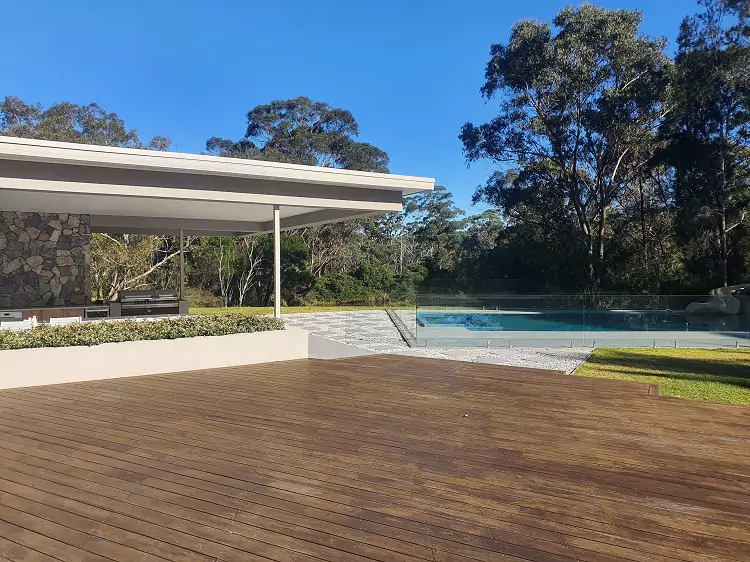
Composite decking vs Hardwood timber decking
Comparing composite decking and hardwood timber for pool decks involves several factors, including maintenance, durability, costs, appearance, and environmental impact.
Composite Decking:
Pros:
- Low Maintenance: Requires minimal upkeep, no need for sanding, staining, or sealing.
- Durability: Highly resistant to rot, warping, and insect damage.
- Longevity: Often comes with long warranties, can last for decades.
- Aesthetic Variety: Available in various colors and styles.
- Eco-Friendly: Typically made from recycled materials.
Cons:
- Higher Initial Cost: More expensive than traditional wood decking initially.
- Less Natural Look: May not have the authentic look and feel of real wood.
- Potential for Heat Retention: Can get hot underfoot in direct sunlight.
- Limited Repair Options: Damaged boards may need complete replacement.
- Expansion and Contraction: Subject to thermal expansion and contraction, requiring proper installation and spacing.
Hardwood Timber Decking:
Pros:
- Aesthetically pleasing and offers the natural feel and appeal of wood.
- Less expensive than composite, especially during installation.
- Known for its durability and strength, with some types able to last over 40 years.
- Highly customizable and functional, and retains less heat, making it comfortable in hot weather
Cons:
- Requires high maintenance to maintain its appearance and prevent moisture damage.
- Some wood species are expensive, especially tropical hardwoods.
- Prone to environmental damage, such as warping, cracking, or rotting
In summary, the choice between composite and hardwood timber decking for a pool deck depends on various factors.
Composite decking is more durable, requires less maintenance, and is eco-friendly, but it is more expensive upfront and offers limited customization.
Hardwood timber, on the other hand, is more aesthetically pleasing, cost-effective, and customizable, but it requires more maintenance and is susceptible to environmental damage.
The decision ultimately depends on your specific needs, preferences, and budget.
How does the Sydney climate affect the choice of timber for pool decks?
Sydney’s climate is generally warm and humid, which can affect the longevity and durability of certain types of timber.
Therefore, it’s important to choose a timber type that can withstand these conditions.
Sydney Pool Decking And Pool Surround Landscapers
Are you ready to build a pool deck or get the pool surrounds of your dreams?
Get in touch with our team and we can give you some great options for your swimming pool landscaping.

